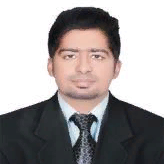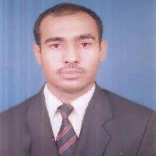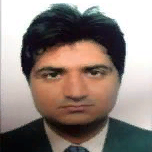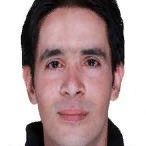International Journal of Mathematical Sciences and Computing (IJMSC)
IJMSC Vol. 5, No. 1, 8 Jan. 2019
Cover page and Table of Contents: PDF (size: 500KB)
Comparison of Fog Computing & Cloud Computing
Full Text (PDF, 500KB), PP.31-41
Views: 0 Downloads: 0
Author(s)
Index Terms
Cloud computing, Fog computing, Comparison
Abstract
Fog computing is extending cloud computing by transferring computation on the edge of networks such as mobile collaborative devices or fixed nodes with built-in data storage, computing, and communication devices. Fog gives focal points of enhanced proficiency, better security, organize data transfer capacity sparing and versatility. With a specific end goal to give imperative subtle elements of Fog registering, we propose attributes of this region and separate from cloud computing research. Cloud computing is developing innovation which gives figuring assets to a specific assignment on pay per utilize. Cloud computing gives benefit three unique models and the cloud gives shoddy; midway oversaw assets for dependable registering for performing required errands. This paper gives correlation and attributes both Fog and cloud computing differs by outline, arrangement, administrations and devices for associations and clients. This comparison shows that Fog provides more flexible infrastructure and better service of data processing by consuming low network bandwidth instead of shifting whole data to the cloud.
Cite This Paper
Vishal Kumar, Asif Ali Laghari, Shahid Karim, Muhammad Shakir, Ali Anwar Brohi,"Comparison of Fog Computing & Cloud Computing", International Journal of Mathematical Sciences and Computing (IJMSC), Vol.5, No.1, pp.31-41, 2019. DOI: 10.5815/ijmsc.2019.01.03
Reference
[1]Pijanowski, Bryan C., Amin Tayyebi, Jarrod Doucette, Burak K. Pekin, David Braun, and James Plourde. "A big data urban growth simulation at a national scale: configuring the GIS and neural network based land transformation model to run in a high performance computing (HPC) environment." Environmental Modelling & Software 51 (2014): 250-268.
[2]Bera, Samaresh, Sudip Misra, and Joel JPC Rodrigues. "Cloud computing applications for smart grid: A survey." IEEE Transactions on Parallel and Distributed Systems 26, no. 5 (2015): 1477-1494.
[3]Vaquero, Luis M., and Luis Rodero-Merino. "Finding your way in the fog: Towards a comprehensive definition of fog computing." ACM SIGCOMM Computer Communication Review 44, no. 5 (2014): 27-32.
[4]https://www.marketsandmarkets.com/PressReleases/cloud-high-performance-computing.asp
[5]Zhang, Huaqing, Yanru Zhang, Yunan Gu, Dusit Niyato, and Zhu Han. "A Hierarchical Game Framework for Resource Management in Fog Computing." IEEE Communications Magazine 55, no. 8 (2017): 52-57.
[6]Stojmenovic, Ivan. "Fog computing: A cloud to the ground support for smart things and machine-to-machine networks." In Telecommunication Networks and Applications Conference (ATNAC), 2014 Australasian, pp. 117-122. IEEE, 2014.
[7]Rahmani, Amir M., Tuan Nguyen Gia, Behailu Negash, Arman Anzanpour, Iman Azimi, Mingzhe Jiang, and Pasi Liljeberg. "Exploiting smart e-health gateways at the edge of healthcare internet-of-things: a fog computing approach." Future Generation Computer Systems 78 (2018): 641-658.
[8]Mukherjee, Mithun, Lei Shu, and Di Wang. "Survey of Fog Computing: Fundamental, Network Applications, and Research Challenges." IEEE Communications Surveys & Tutorials (2018).
[9]Skourletopoulos, Georgios, Constandinos X. Mavromoustakis, George Mastorakis, Jordi Mongay Batalla, Ciprian Dobre, John N. Sahalos, Rossitza I. Goleva, and Nuno M. Garcia. "Game Theoretic Approaches in Mobile Cloud Computing Systems for Big Data Applications: A Systematic Literature Review." In Mobile Big Data, pp. 41-62. Springer, Cham, 2018.
[10]Lordan, Francesc, Daniele Lezzi, Jorge Ejarque, and Rosa M. Badia. "An Architecture for Programming Distributed Applications on Fog to Cloud Systems." In European Conference on Parallel Processing, pp. 325-337. Springer, Cham, 2017.
[11]Bose, Rajesh, Murari Krishna Saha, and Debabrata Sarddar. "Fog Computing Made Easy with the Help of Citrix and Billboard Manager." International Journal of Computer Applications 121, no. 7 (2015).
[12]Abbadi, Imad M. "Toward trustworthy clouds’ internet scale critical infrastructure." In International Conference on Information Security Practice and Experience, pp. 71-82. Springer, Berlin, Heidelberg, 2011.
[13]Oppitz, Marcus, and Peter Tomsu. "Internet of Things." In Inventing the Cloud Century, pp. 435-469. Springer, Cham, 2018.
[14]Ray, Sandip, Yier Jin, and Arijit Raychowdhury. "The changing computing paradigm with internet of things: A tutorial introduction." IEEE Design & Test 33, no. 2 (2016): 76-96.
[15]Laghari, Asif Ali, Hui He, Imtiaz A. Halepoto, M. Sulleman Memon, and Sajida Parveen. "Analysis of Quality of Experience Frameworks for Cloud Computing." IJCSNS 17, no. 12 (2017): 228.
[16]Seyyed Mohsen Hashemi,Amid Khatibi Bardsiri “Cloud Computing Vs. Grid Computing” ARPN Journal of Systems and Software, VOL. 2, NO.5, MAY 2012 ISSN 2222-9833.
[17]Laghari, Asif Ali, Hui He, Muhammad Shafiq, and Asiya Khan. "Application of Quality of Experience in Networked Services: Review, Trend & Perspectives." Systemic Practice and Action Research (2018): 1-19.
[18]Mell, Peter, and Tim Grance. "The NIST definition of cloud computing." (2011).
[19]Laghari, Asif Ali, Hui He, Muhammad Shafiq, and Asiya Khan. "Assessing effect of Cloud distance on end user's Quality of Experience (QoE)." In Computer and Communications (ICCC), 2016 2nd IEEE International Conference on, pp. 500-505. IEEE, 2016.
[20]Dempsey, David, and Felicity Kelliher. "Revenue Models and Pricing Strategies in the B2B SaaS Market." In Industry Trends in Cloud Computing, pp. 45-82. Palgrave Macmillan, Cham, 2018.
[21]Jagli, Dhanamma, Seema Purohit, and N. Subhash Chandra. "SAASQUAL: A Quality Model for Evaluating SaaS on the Cloud Computing Environment." In Big Data Analytics, pp. 429-437. Springer, Singapore, 2018.
[22]Krancher, Oliver, Pascal Luther, and Marc Jost. "Key Affordances of Platform-as-a-Service: Self-Organization and Continuous Feedback." Journal of Management Information Systems 35 (2018): 1-43.
[23]Pahl, Claus. "Containerization and the paas cloud." IEEE Cloud Computing 2, no. 3 (2015): 24-31.
[24]Kashif, Ubaidullah Alias, Zulfiqar Ali Memon, Shafaq Siddiqui, Abdul Rasheed Balouch, and Rakhi Batra. "Architectural Design of Trusted Platform for IaaS Cloud Computing." International Journal of Cloud Applications and Computing (IJCAC) 8, no. 2 (2018): 47-65.
[25]Aggarwal, Ritu. "Resource Provisioning and Resource Allocation in Cloud Computing Environment." (2018).
[26]Briggs, Benjamin David, Lawrence A. Clevengen, Bartlet H. DeProspo, and Michael Rizzolo. "Structure, system, method, and recording medium of implementing a directed self-assembled security pattern." U.S. Patent Application 15/055,835, filed August 31, 2017.
[27]Saraswathi, M., and T. Bhuvaneswari. "A Secured Storage using AES Algorithm and Role Based Access in Cloud." (2017).
[28]Hu, Han, Yonggang Wen, and Dusit Niyato. "Public cloud storage-assisted mobile social video sharing: A supermodular game approach." IEEE journal on selected areas in communications 35, no. 3 (2017): 545-556.
[29]Manu, A. R., V. K. Agrawal, and KN Bala Subramanya Murthy. "An empirical hunt for ally co-operative cloud computing utility." In Intelligent Systems and Control (ISCO), 2017 11th International Conference on, pp. 422-438. IEEE, 2017.
[30]Goyal, Sumit. "Public vs private vs hybrid vs community-cloud computing: A critical review." International Journal of Computer Network and Information Security 6, no. 3 (2014): 20.
[31]Ramanathan, Ramakrishnan, and B. Latha. "Towards optimal resource provisioning for Hadoop-MapReduce jobs using scale-out strategy and its performance analysis in private cloud environment." Cluster Computing (2018): 1-11.
[32]Li, Qing, Ze-yuan Wang, Wei-hua Li, Jun Li, Cheng Wang, and Rui-yang Du. "Applications integration in a hybrid cloud computing environment: Modelling and platform." Enterprise Information Systems 7, no. 3 (2013): 237-271.
[33]Huang, Dijiang, and Huijun Wu. Mobile Cloud Computing: Foundations and Service Models. Morgan Kaufmann, 2017.
[34]Mao, Yuyi, Changsheng You, Jun Zhang, Kaibin Huang, and Khaled B. Letaief. "A survey on mobile edge computing: The communication perspective." IEEE Communications Surveys & Tutorials 19, no. 4 (2017): 2322-2358.
[35]Bonomi, Flavio, Rodolfo Milito, Preethi Natarajan, and Jiang Zhu. "Fog computing: A platform for internet of things and analytics." In Big data and internet of things: A roadmap for smart environments, pp. 169-186. Springer, Cham, 2014.
[36]Aazam, Mohammad, and Eui-Nam Huh. "Fog computing and smart gateway based communication for cloud of things." In Future Internet of Things and Cloud (FiCloud), 2014 International Conference on, pp. 464-470. IEEE, 2014.
[37]Aazam, Mohammad, and Eui-Nam Huh. "Fog computing micro datacenter based dynamic resource estimation and pricing model for IoT." In Advanced Information Networking and Applications (AINA), 2015 IEEE 29th International Conference on, pp. 687-694. IEEE, 2015.
[38]Gupta, Harshit, Amir Vahid Dastjerdi, Soumya K. Ghosh, and Rajkumar Buyya. "iFogSim: A toolkit for modeling and simulation of resource management techniques in the Internet of Things, Edge and Fog computing environments." Software: Practice and Experience 47, no. 9 (2017): 1275-1296.
[39]Saurez, Enrique, Harshit Gupta, Ruben Mayer, and Umakishore Ramachandran. "Demo abstract: Fog computing for improving user application interaction and context awareness." In Internet-of-Things Design and Implementation (IoTDI), 2017 IEEE/ACM Second International Conference on, pp. 281-282. IEEE, 2017.
[40]Osanaiye, Opeyemi, Shuo Chen, Zheng Yan, Rongxing Lu, Kim-Kwang Raymond Choo, and Mqhele Dlodlo. "From cloud to fog computing: A review and a conceptual live VM migration framework." IEEE Access 5 (2017): 8284-8300.
[41]https://www.cisco.com/c/en/us/solutions/internet-of-things/iot-fog-applications.html
[42]Wai, Ei Nyein Chan, Pei-Wei Tsai, and Jeng-Shyang Pan. "Hierarchical PSO clustering on mapreduce for scalable privacy preservation in big data." In International Conference on Genetic and Evolutionary Computing, pp. 36-44. Springer, Cham, 2016.
[43]ZHENGKUI, WANG. "Scalable Data Analysis on MapReduce-based Systems." PhD diss., 2013.
[44]Shrivastava, Sonika, and R. K. Pateriya. "Secure Framework for E-Commerce Applications in Cloud Environment." In Improving E-Commerce Web Applications Through Business Intelligence Techniques, pp. 82-109. IGI Global, 2018.
[45]Raj, R. Sundar, and Dr V. Murali Bhaskaran. "Comparative Analysis of Cloud Tools to Implement Automated Resource and Security Management." Indian Journal of Engineering (An International Journal) 14, no. 35 (2017): 20-32.
[46]Gupta, Harshit, Amir Vahid Dastjerdi, Soumya K. Ghosh, and Rajkumar Buyya. "iFogSim: A toolkit for modeling and simulation of resource management techniques in the Internet of Things, Edge and Fog computing environments." Software: Practice and Experience 47, no. 9 (2017): 1275-1296.
[47]http://www.cloudbus.org/fog/
[48]https://github.com/Cloudslab/iFogSim
[49]https://fogproject.org/
[50]Calheiros, Rodrigo N., Rajiv Ranjan, Anton Beloglazov, César AF De Rose, and Rajkumar Buyya. "CloudSim: a toolkit for modeling and simulation of cloud computing environments and evaluation of resource provisioning algorithms." Software: Practice and experience 41, no. 1 (2011): 23-50.
[51]https://www.zenoss.com/
[52]Hendrick, Evan, Brad Schooley, and Chunming Gao. "CloudHealth: developing a reliable cloud platform for healthcare applications." In Consumer Communications and Networking Conference (CCNC), 2013 IEEE, pp. 887-891. IEEE, 2013.
[53]“Cloudera”, http://www.cloudera.com.
[54]Laghari, Asif Ali, Hui He, Muhammad Shafiq, and Asiya Khan. "Impact of storage of mobile on quality of experience (QoE) at user level accessing cloud." In Communication Software and Networks (ICCSN), 2017 IEEE 9th International Conference on, pp. 1402-1409. IEEE, 2017.
[55]Laghari, Asif Ali, Hui He, Shahid Karim, Himat Ali Shah, and Nabin Kumar Karn. "Quality of Experience Assessment of Video Quality in Social Clouds." Wireless Communications and Mobile Computing 2017 (2017).
[56]Yi, Shanhe, Cheng Li, and Qun Li. "A survey of fog computing: concepts, applications and issues." In Proceedings of the 2015 workshop on mobile big data, pp. 37-42. ACM, 2015.
[57]Yi, Shanhe, Zhengrui Qin, and Qun Li. "Security and privacy issues of fog computing: A survey." In International conference on wireless algorithms, systems, and applications, pp. 685-695. Springer, Cham, 2015.
[58]Laghari, Asif Ali, Hui He, and Muhammad Ibrahim Channa. "Measuring effect of packet reordering on quality of experience (QoE) in video streaming." 3D Research 9, no. 3 (2018): 30.
[59]Laghari, Asif Ali, Hui He, Asiya Khan, and Sajida Karim. "Impact of Video File Format on Quality of Experience (QoE) of Multimedia Content." 3D Research 9, no. 3 (2018): 39.
[60]Yadav, Rahul, Weizhe Zhang, Huang Chen, and Tao Guo. "MuMs: Energy-Aware VM Selection Scheme for Cloud Data Center." In Database and Expert Systems Applications (DEXA), 2017 28th International Workshop on, pp. 132-136. IEEE, 2017.
[61]Yadav, Rahul, and Weizhe Zhang. "MeReg: Managing Energy-SLA Tradeoff for Green Mobile Cloud Computing." Wireless Communications and Mobile Computing 2017 (2017).
[62]Laghari, A., H. He, A. I. Khan, N. Kumar, and R. Kharel. "Quality of Experience Framework for Cloud Computing (QoC)." (2018). August 2018, IEEE Access, DOI: 10.1109/ACCESS.2018.2865967
[63]Laghari, Asif Ali, Hui He, Muhammad Shafiq, and Asiya Khan. "Assessment of quality of experience (QoE) of image compression in social cloud computing." Multiagent and Grid Systems 14, no. 2 (2018): 125-143.




